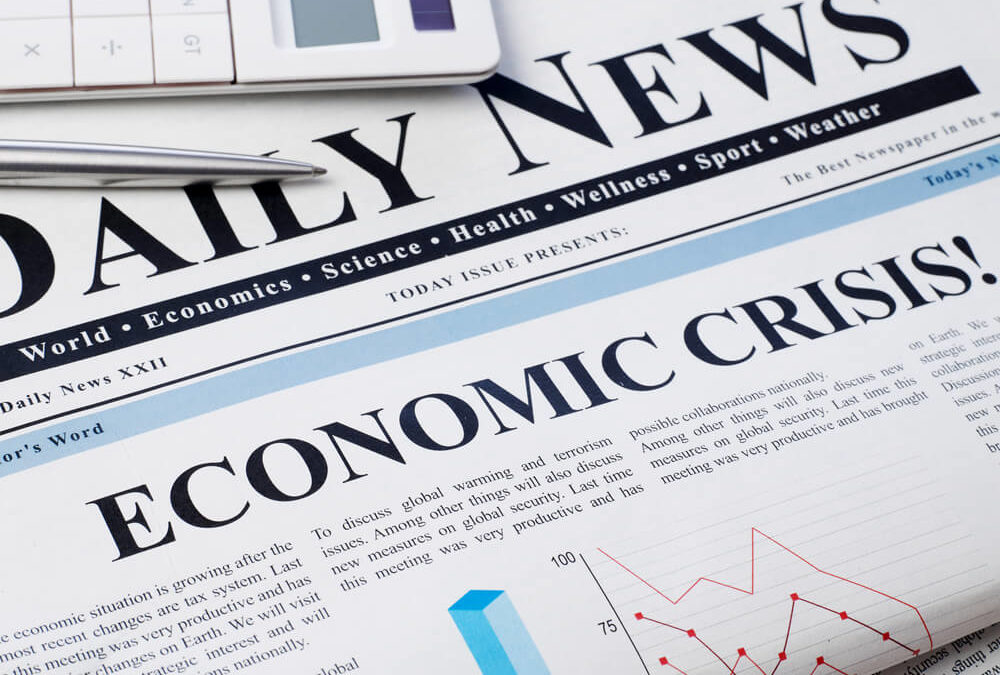The ongoing government shutdown entered its 26th day Wednesday and while most economists agree the shutdown will hurt U.S. economic growth, the doomsday chorus is growing louder by the day.
The shutdown over President Donald Trump’s long-promised border wall is the longest shutdown ever for the U.S. government, and there appears to be no end in sight. Trump wants $5.7 billion allocated for a border wall between the U.S. and Mexico in the government’s latest spending bill. But Democrats, now in control of the House of Representatives, aren’t budging.
It’s a game of chicken that could have long-lasting effects and could even push us into a recession much sooner than previous projections.
And according to economists, the effects of 800,000 federal workers and millions of government contractors working without pay or not working at all is starting to negatively affect the economy, and it’s only going to get worse.
The ongoing trade war with China also is a looming storm cloud, and there is another fight coming down the pike in March over the debt ceiling.
Here is a brief roundup of what the experts are saying, per Business Insider:
- Bank of America Merrill Lynch reiterated their concern about the economic cost of the shutdown on Wednesday. “It [the shutdown] definitely becomes a significant shock if it lasts for months rather than weeks,” Ethan Harris, head of global economics research at Bank of America Merrill Lynch, told the Financial Times. “There is a sensitivity in the markets to signs of dysfunction in Washington.”
- Standard & Poor’s pointed out that the cost of the shutdown will soon outpace Trump’s $5 billion demand for a wall.
- The White House even increased its own internal estimate of the GDP hit. A White House official confirmed to Business Insider that the Trump administration’s own model estimated that the shutdown would shave off 0.13 percentage points from GDP for every week of the shutdown. This is higher than the 0.08 percentage points originally assumed.
- JPMorgan CEO Jamie Dimon said Tuesday that the shutdown is a serious problem for the US economy and cited research that showed US GDP growth could go to zero if the shutdown continued.
- Pantheon Macroeconomics’ Ian Shepherdson was even more bearish, warning that if the shutdown lasts through March, then the US’s first-quarter GDP could be negative.
- BAML’s own figures actually suggest that for each week the government is shutdown, US GDP growth is cut by 0.05%. This is half the economic impact of the 2013 shutdown because the current shutdown only affects part of the government. But the economists warned that the pain could get exponentially worse as the fight continues.
- Another major concern is the possibility that the shutdown impacts the US’s credit rating. During the 2013 shutdown fight over the debt ceiling, the US was downgraded to AA+ by S&P, a historic first for the country. While Fitch maintained the US’s AAA rating in 2013, James McCormack, the agency’s global head of sovereign ratings, warned that a downgrade was possible in 2019.
There are a variety of reasons for the shutdown slowdown. For instance, figures from 2013 suggest federal workers spent 10-15% less during the time they went unpaid, reducing consumer spending.
The shutdown also exacerbates worries about the future, potentially more economically damaging, fights in Congress. The most pressing of which is the need to raise the debt ceiling in the coming months.
As it stands the debt ceiling, or the statutory limit on the amount of debt the federal government can hold, kicks back in on March 1. While the US Treasury can maintain funding through special measures, the ceiling will still need to be lifted by Congress sometime over the summer.
Some analysts believe that the historic dysfunction over the shutdown sets a nasty precedent for the debt ceiling fight. Without an increase in the ceiling the US could default on some of its debt, an unprecedented move that would send shockwaves throughout the global economy.
“Normally, the debt ceiling ends up being lifted, but with deadlock in Congress” there’s added risk, said Neil MacKinnon, Global Macro Strategist at VTB Capital.
[totalpoll id=”8063″]




